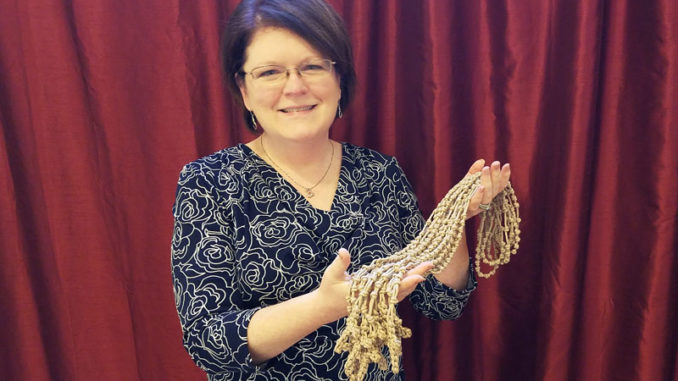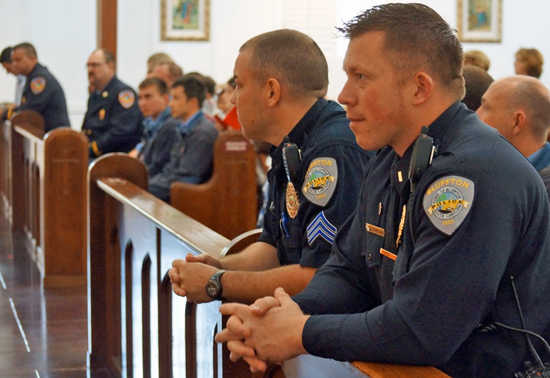
COLUMBIA–The simple act of praying the rosary can bring great comfort to military personnel who are deployed overseas, particularly if they are out in the field in a combat or high-security situation.
The only problem? Service members can’t carry the types of rosaries most people use because of security concerns.
Light gleaming off a crucifix, a bead or a medal dangling from a rosary, or the sound of solid beads making contact with other objects, can betray the location of someone in a combat zone.
What is the answer? Knotted-cord rosaries made of nylon paracord, otherwise known as parachute cord, or other materials.
In the past few months, people around the Diocese of Charleston have started making these rosaries to send to Catholic men and women deployed overseas.
The statewide Knotted-Cord Rosary Project was launched by Sally Zaleski, a member of St. Joseph Church in Columbia, who has always been interested in helping service members. Late last year, she spoke with Father Matthew Gray, the former vicar of vocations who now serves as a military chaplain for the Archdiocese for the Military Services. Father Gray is currently deployed to an undisclosed location overseas.
Zaleski asked what she could do to help him and the troops he was going to serve. His response was prompt: “I need rosaries and lots of them.”
Rosaries, Father Gray said, offered one of the easiest ways to give service members quick access to prayer and spiritual comfort, and also serve as tangible reminders of their faith. Then he told her about the need for knotted-cord rosaries because of the security risks.
Zaleski researched how to make the rosaries, and started recruiting people in the Midlands to help with the project. Soon, rosary-making groups popped up at St. Joseph and at the Basilica of St. Peter, and eventually followed at Transfiguration Church in Blythewood, Prince of Peace in Taylors, and Our Lady of Perpetual Help in Camden.
The first shipment of 80 knotted-cord rosaries went overseas in late January, and other shipments will continue every two weeks. Zaleski said the initial goal is to get 2,000 knotted-cord rosaries into the hands of our service members.
It doesn’t take long to learn how to make them, she said, and it’s a project that can be taken up by small groups or people having to stay in isolation because of the pandemic.
“Making one of these rosaries is also an opportunity to pray for the service member who is going to receive it,” she said. “It’s a great work of mercy. You are touching lives overseas and helping the efforts of one of our military chaplains. If people get in touch with us, we can tell them about how to order the supplies and how to learn how to make the rosaries.”
She is currently ordering materials from a Georgia-based company called Board Paracord, which is veteran-owned.
To help with the Knotted-Cord Rosary Project contact salgal71@gmail.com.


